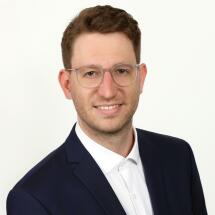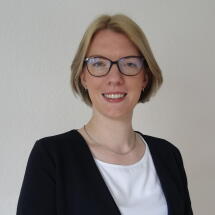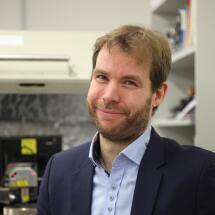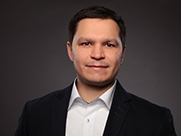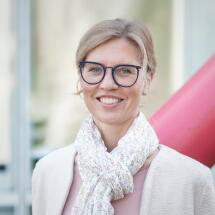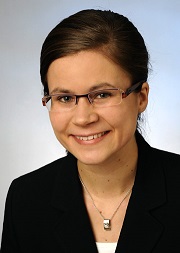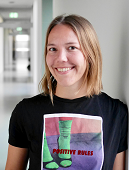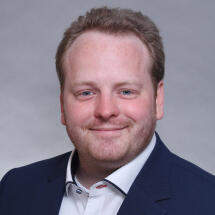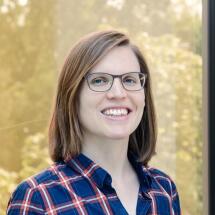Nachwuchsförderung am Fachbereich Chemie und Pharmazie
Nachwuchswissenschaftler*innen bietet der Fachbereich Chemie und Pharmazie ein attraktives Umfeld für den Aufbau ihrer eigenen Gruppe. Neben einer außerordentlichen Bandbreite an Forschungseinrichtungen in zehn Instituten (s. auch nebenstehende Linksammlung „Institute“) wird die interdisziplinäre Vernetzung auf modernen Forschungsgebieten durch eine Reihe von in der direkten Nachbarschaft angesiedelten interdisziplinären Forschungszentren vorangetrieben (s. auch Linksammlung „Forschungseinrichtungen“).
Die Institute des Fachbereichs verfügen über eine moderne Forschungsinfrastruktur die durch eine hervorragende Ausstattung mit Großgeräten und die institutsübergreifende, interdisziplinäre Kooperation von Serviceabteilungen ein effizientes Arbeiten ermöglicht.
Darüber hinaus erhalten Nachwuchsgruppenleiter*innen in allen Stadien ihrer Karriere Unterstützung durch den Fachbereich und die zentralen Einrichtungen der Universität Münster. Das Nachwuchsförderprogramm des Fachbereichs unterstützt neu gegründete Nachwuchsgruppen in Form einer flexibel verwendbaren Anschubfinanzierung sowie eines gestuften Prämiensystems für das Einwerben von Drittmitteln. Das Young Professors Programme (YPP) bietet ein speziell auf Juniorprofessor*innen und Nachwuchsgruppenleiter*innen zugeschnittenes Fortbildungs- und Beratungsangebot. Darüber hinaus bieten die zentralen Beratungsstellen der Universität Münster wie die SAFIR-Forschungsförderberatung und das Zentrum für Hochschullehre (ZHL) kompetente Unterstützung in allen Bereichen des Wissenschaftsmanagements von A wie Antragsberatung bis Z wie zentrale Vernetzungstreffen der Nachwuchsgruppenleiter*innen.
Starten Sie selbst gerade Ihre eigenständige Karriere als Nachwuchsgruppenleiter*in am Fachbereich Chemie und Pharmazie? Dann reichen Sie bitte das Anmeldeformular über den Geschäftsführenden Direktor Ihres Institut im Dekanat ein (Ansprechperson: Dr. Hauke Engler).
Kontaktperson im Dekanat
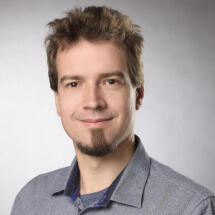
© www.studioschloen.de Vom Nachwuchsförderprogramm geförderte Personen
Dr. Nicolas Cornelissen (Chemo-enzymatic synthesis of modified nucleotides and nucleic acids)
We are interested in the chemo-enzymatic synthesis of modified nucleotides, enzyme engineering and the biological evaluation of modified nucleic acids, such as mRNA, in mammalian cells.
Modified nucleotides are important building blocks for a wide variety of nucleic acid-based therapeutics, including siRNAs, ASOs and mRNA. Although nucleotides have been synthesised for decades, simple, fast and environmentally friendly methods are urgently needed. Our chemo-enzymatic approach combines the organic synthesis of nucleoside-5′-monophosphates (NMPs) with the efficient enzymatic phosphorylation of promiscuous polyphosphate kinases, generating the corresponding nucleoside-5′-triphosphates (NTPs).
Engineering of polyphosphate kinases provides access to variants with a broad substrate spectrum. We have demonstrated that these enzymes can be applied for the synthesis of various base-modified ATP and GTP analogues.
The poly(A) tail is a hallmark of eukaryotic mRNAs and plays a pivotal role in the translation initiation and stability. We can generate hyper-modified poly(A) tails (100-1000 nucleotides) and aim to elucidate the structure-function relationship of the poly(A) tail in mammalian cells. This will inform the design of the next generation of mRNA therapeutics.
Dr. Anne Gresch (Pharmazeutische und Medizinische Chemie)
Dr. Marian Hebenbrock (Anorganische Chemie)
PD Dr. Fabian Herrmann (Pharmazeutische Biologie und Phytochemie)
PD Dr. Dmitrii V. Kalinin (Pharmazeutische und Medizinische Chemie)
Dr. Svetlana A. Kalinina (Lebensmittelchemie)
Dr. Felicitas Lips (Anorganische Chemie)
Xabier Martinez de Ijuro Labalde (Battery materials for solid ionic conductors and electrode materials)
Solid-state chemistry and materials science with a focus on structure-property relationships that guide the design of battery materials for solid ionic conductors and electrode materials. Expert in the synthesis and structural characterization of inorganic solids using a variety of diffraction methods such as electron, X-ray and neutron diffraction, as well as imaging methods such as transmission electron microscopy. Vast expertise in the measurement and analyses of ionic & electronic transport in solids.
Dr. Line Muradi (Organische Chemie)
Dr. Julian A. Schreiber (Pharmazeutische und Medizinische Chemie / Institut für Genetik von Herzerkrankungen)
PD Dr. Verena Spiegler (Pharmazeutische Biologie und Phytochemie)
Weitere Nachwuchswissenschaftler*innen am Fachbereich
Dr. Sarah Hester (Nanoparticles for the pharmaceutical technology)
My research addresses the major translational challenges associated with intravenously applied nanoparticles. The foundation is the use of biocompatible materials, enabling precise control of cell compatibility to ensure biosafety. We develop scalable manufacturing processes to facilitate large-scale production from “lab to industry”, while maintaining nanoparticle quality. Further we want to implement strategies to minimize immune responses by optimizing nanoparticle flexibility and exploiting active targeting mechanisms, which help improve delivery efficiency and reduce off-target effects. To ensure practical applicability, storage stability is also a priority to us, with efforts aimed at preserving nanoparticle integrity and efficacy over time.

